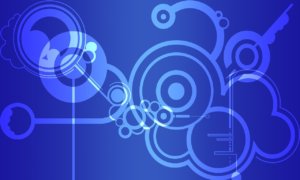INET’s grantees and Commission on Global Economic Transformation are looking at artificial intelligence and society.
Since its founding in the aftermath of the 2008 global financial crisis, INET has been spearheading efforts to move economics towards more pluralistic, multidisciplinary, and human-centric approaches. The evident failure of the profession’s mainstream to predict, prevent, and manage the crisis has laid bare its limitations. Currently, in the face of another transformation of seismic scale—the rise of artificial intelligence, or AI—an enlarged and improved economic discussion is crucial to ensure shared prosperity, and that humanity as a whole is not left behind.
AI may not shake up our economic system the way a financial crisis would, but its inexorable advent and estimable power to change our economy and society is only more profound. At stake are jobs created or lost with the application of new technologies, wages available to the workforce and their distributions, as well as the future development path of entire nations. INET’s ongoing project, the Commission on Global Economic Transformation, has investigating AI, the digital economy, and their impact on our society as one of its key focuses.
Research on AI and automation has mushroomed in the last few years. McKinsey Global Institute estimates around half of all jobs are “technically automatable” by technologies already demonstrated. MIT’s Daron Acemoglu argues we’re currently too focused on the “wrong kind of AI” where further automation is an end in itself, potentially sacrificing other more important economic goals such as empowering human labor. This research is helpful in showing us the extent of AI penetration in the economy and making us think hard about the policy framework required to analyze it.
Recently, a new paper by INET grantee and University of Virginia professor Anton Korinek sheds light on the very question of AI and economics. More specifically, he juxtaposed economic calculations on the development of AI against ethical considerations and arrived at the key conclusion that technological progress doesn’t just happen, but is a result of collective human decisions and efforts.
The system of market prices occupies the central role of economic analysis, in reflecting the scarcity of commodities and guiding economic decisions. Effective as they are in organizing the economic system, economic considerations are by no means the only things that should enter such decision processes. Ethical values generally agreed on in our society present equally useful guidance in thinking about AI. As Korinek presents it, questions such as whether it’s right to introduce new technologies that lead to job losses are not easily answered when both perspectives are consulted. Common economic arguments about efficiency and overall societal gains are counterbalanced by ethical arguments that tangible and immediate sufferings from job losses are undesirable regardless. Only a joint statement by the two sides could feature important insights on the necessity of social protection and the direction innovations may take.
Examples on economic and ethical differences abound in considering the development and adoption of AI, according to Korinek. But because of the limits in our pro-social instincts, the subjectivity of ethical values, and the seemingly clear-cut answers offer by the market system, economic considerations often have the upper hand over ethical values. For the general welfare of humanity, economic considerations clearly need to be put in its place.
Our economy is in rapid transformation, but the economic framework used to study it is often not keeping up, due to inattention, resistance or other factors. To get things right and get things going, economics needs to continuously evolve, and the arrival of AI is already pushing its traditional boundary.





